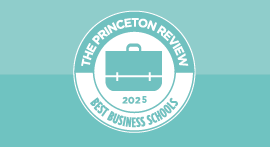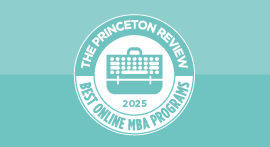Courses in Sustainability
Yes
Sustainability course is
Optional
Description
https://businessimpact.umich.edu/map-your-um-journey/courses/michigan-ross-mba-course-list/
Research Opportunities in Sustainability
Yes
Description
Opportunities for students in the MBA/MS degree managed by the Erb Institute: Michigan Business Sustainability Roundtable (MBSR): Students provide research for this business roundtable comprised of the Chief Sustainability Officers of some of Michigan’s largest companies, focused on advocating for state-level policy on climate change and social justice in Michigan. https://erb.umich.edu/partner-with-erb/mbsr/ Corporate Political Responsibility Taskforce (CPRT): Students provide research and assist with facilitation of this business roundtable comprised of sustainability and government-affairs officers of leading US brands, focused on helping the companies implement corporate political responsibility in their political spending and lobbying, focused on closing the gap between their public sustainability goals and what they actually lobby for in Washington, DC. https://erb.umich.edu/partner-with-erb/corporate-political-responsibility-taskforce/ Erb Seminar - First year Erb Institute students take the required Erb Seminar course, which includes two days on-the-ground in Detroit to see business, sustainability and justice up-close-and-personal with companies, nonprofits, activists in this iconic city which is undergoing a transformational process of urban revitalization. Opus Finish – Erb Institute students complete the master's of science with a capstone experience of their choosing. Many Erb / SEAS master's students opt to participate in a master's project as their capstone experience. Interdisciplinary teams of students work with faculty mentors to help solve actual environmental challenges for real clients—from all sectors, at various scales and in locations around the world. Other Erb / SEAS students choose to complete a practicum (a supervised application of a previously developed theory) or a thesis (an individual scholarly work based on independent research). Impact Projects - The Erb Institute offers Impact Project funding to Erb students as an opportunity to drive real-world business sustainability impact. Students are invited to design high-impact projects to take their learning into their own hands and dive deeper into a specific area of business and sustainability. The institute also offers partner-led Impact Projects in which partner companies and nonprofits provide a stipend for students to work with them on meeting real-life business-sustainability challenges and opportunities. Erb branded case studies - Student groups in certain classes are required to undertake the requisite research to develop a case that addresses a business sustainability issue, many of which are published on WDI Publishing and cross-listed via Harvard Business Review. Additional opportunities: Students have the ability to undertake individual or group Study Projects for course credit. These projects are coordinated with a sponsoring faculty member and approved by the Department Chairperson as well as the Associate Dean.
School's environmental commitment 1:
1. Concentration and Dual Degree. New ESG Concentration launched in 2023 to complement the MBA curriculum with sustainability electives to help students consider the sustainability “triple bottom line” - environmental protection, social well-being, and economic performance. Available courses cover topics like climate change, food security, energy, water, the built environment, manufacturing, materials, and social impact. https://businessimpact.umich.edu/map-your-um-journey/courses/michigan-ross-mba-course-list/ The Erb Institute: The Erb Institute is a partnership between the Stephen M. Ross School of Business and the School for Environment and Sustainability at the University of Michigan. The Erb Institute Dual Degree MBA/MS is a deeper dive into sustainability, and prepares leaders committed to creating a socially and environmentally sustainable society through the power of business in just 2.5 – 3 years. The Institute's impact is realized most powerfully through their vibrant global network of students and alumni who are the transformative change agents across industries and sectors. http://erb.umich.edu Michigan Ross Executive Education: The Erb Institute partners with Ross Executive Education to provide “Sustainability Academy” to companies and nonprofits to build their leaders’ and managers’ capacity for sustainability strategy and operations, positive work culture, social and environmental impact, and diversity, equity & inclusion.
School's environmental commitment 2:
2. Extra-curricular Activities. The Ross Net Impact chapter at Ross has achieved Gold status for the last 7 years and connects people, ideas and perspectives at the University of Michigan. The club facilitates exploration and dialogue that drive positive social and environmental change both at Ross and in the workplace, regardless of industry or career path. RNI embodies the strategic vision of Ross, and works with students, faculty, alumni, and the national Net Impact network to provide members with opportunities to build tangible skills and create valuable connections. http://ross.campusgroups.com/netimpact/about-us/ Additional sustainability-minded clubs include: Detroit Revitalization and Business Initiative, Emerging Markets Club, Green Wolverine, Impact Investing, Energy Club and Smart Cities Club. In addition, Ross hosted the annual ClimateCAP Summit (https://www.climatecap.org/) in 2024 which brought together nearly 500 MBA students from 26 schools of the ClimateCAP network for two days of plenary sessions, breakout workshops, networking events and a final closing dinner with Michigan Lieutenant Governor Garlin Gilchrist II at the Michigan “Big House” stadium. https://michiganross.umich.edu/news/ross-school-business-host-2024-climatecap-mba-summit
School's environmental commitment 3:
3. Ross Buildings. Michigan Ross's buildings use many architecturally innovative and environmentally responsible features. The Ross main building earned LEED Silver certification from the U.S. Green Building Council for its sustainable design; Ross' Kresge and Blau Halls were awarded LEED Gold certification. https://michiganross.umich.edu/about/our-campus/sustainable




